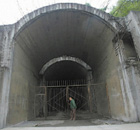-
-
China Daily E-paper
Op-Ed Contributors
Debate: Nuclear summit
(China Daily)
Updated: 2010-04-12 08:16
 |
Large Medium Small |
Su Hao: Joint action needed to ensure security
The nuclear security summit that will be held in Washington has caught the attention of the world. President Hu Jintao will attend the meeting, and as China plays a significant role in the global nuclear issue, the Chinese public people will keenly watch developments. Generally speaking, the international nuclear security issue consists of three aspects: Nuclear disarmament, non-proliferation, and nuclear safety. Nuclear safety, a significant component of international security, denotes the measures taken by the international community to ensure the safety of nuclear facilities and materials, to thwart malicious action such as theft, sabotage, unauthorized obtainment and illegal sales of nuclear material, and prevent non-State actors, especially terrorists, from procuring nuclear material and launching nuclear attacks.

The international community has achieved marked progress in all three aspects this year. The US and Russia signed a nuclear arms reduction pact on Saturday, a crucial step toward international nuclear disarmament. In May, the United Nations (UN) will hold a conference on the Nuclear Non-proliferation Treaty (NPT). The Washington summit shows the determination of the major global powers to ensure the safety of nuclear facilities and material.
We should realize, however, that the nuclear summit is ardently promoted by US President Barack Obama, who has advocated a "nuclear free world" ever since he took office. Though he is the president of the country with the most powerful nuclear arsenal, he has called for global efforts to march toward a nuclear-free future to try to fulfill that dream. By so doing, the US not only seizes the moral high ground, but also maintains its military supremacy.
In addition, it could add international pressure on countries seeking nuclear weapons, such as the Democratic People's Republic of Korea (DPRK) and Iran. Apparently, the issue of nuclear safety is an effective leverage point for the US to achieve its national security goals.
Terrorism has become a crucial concern for the international community since the end of the Cold War with both the developed countries and the developing world having been targeted. The 9/11 attacks in the US showed the cruelty and severity of the threat from international terrorism. If the terrorists obtain just one or two nuclear weapons or a little nuclear material, they may use them as dreadful weapons. Nuclear radiation, by releasing nuclear material in densely-populated areas, may severely pollute the environment and cause tremendous casualties, let alone an attack by a nuclear bomb.
Hence, it is vital to prevent terrorists from getting hold of nuclear material. Due to this concern, in July last year, Obama called for a world nuclear security summit. He intends to build a consensus among major powers on the threat of nuclear terrorism, and to push forward effective measures and substantial cooperation by the international community in a bid to forestall nuclear terrorism. Hence, the summit can be regarded as the continuation of the long-term anti-terror strategy of the US since the 9/11 attacks. Of course, it suits the common interests of the international community to fight terrorist threats, too.
Nearly 50 heads of state and government leaders as well as the UN, the European Union (EU) and the International Atomic Energy Agency (IAEA) are expected to attend the summit. It is reported that the summit will mainly discuss issues in terms of reducing and eliminating the threat of nuclear terrorism, strengthening the management of nuclear material, and action plans by each country, and the IAEA's role in ensuring nuclear safety.
Leaders attending the summit will reach a basic consensus that nuclear terrorism is one of the most challenging threats to international security. They are expected to issue a nuclear security communiqu and an action plan.
As a country subjected directly to the threat of terrorism, China backs the summit's purpose, and President Hu decided to attend the summit even though China-US relations have experienced a series of twists and turns over the past three months.
China, as a responsible power, has a good record in safeguarding nuclear safety, and the summit needs China's participation to ensure its effectiveness.
Meanwhile, Beijing and Washington share common understanding, interests and responsibility in terms of safeguarding nuclear safety, and the two sides should make positive contributions to nuclear safety.
President Hu will address the summit, where he will explain the nation's basic stance on nuclear security and express support for the purposes and principles of the summit and Beijing's willingness to work together with all participating countries in taking positive and effective measures to prevent terrorists or other transnational criminals from procuring nuclear material.
However, we should also be aware that the agenda of the US-initiated summit is set in accordance with US strategic needs and interests, which seems to mainly focus on terrorism and criminals. Actually, nuclear security has a more wide-ranging connotation, such as the risk to residents and damage to the environment caused by a nuclear leak from nuclear facilities or the potential hazard of poor management of nuclear power plants due to incompetence in some developing countries. In addition, the absence of some nuclear states, such as the DPRK and Iran, might lead to differences among countries in dealing with nuclear safety.
Therefore, we should emphasize that the nuclear safety issue should not be limited only to the threat of nuclear terrorism; it also exists in civilian nuclear energy.
The author is professor and director of the Strategy and Conflicts Research Center, China Foreign Affairs University
(China Daily 04/12/2010 page10)









